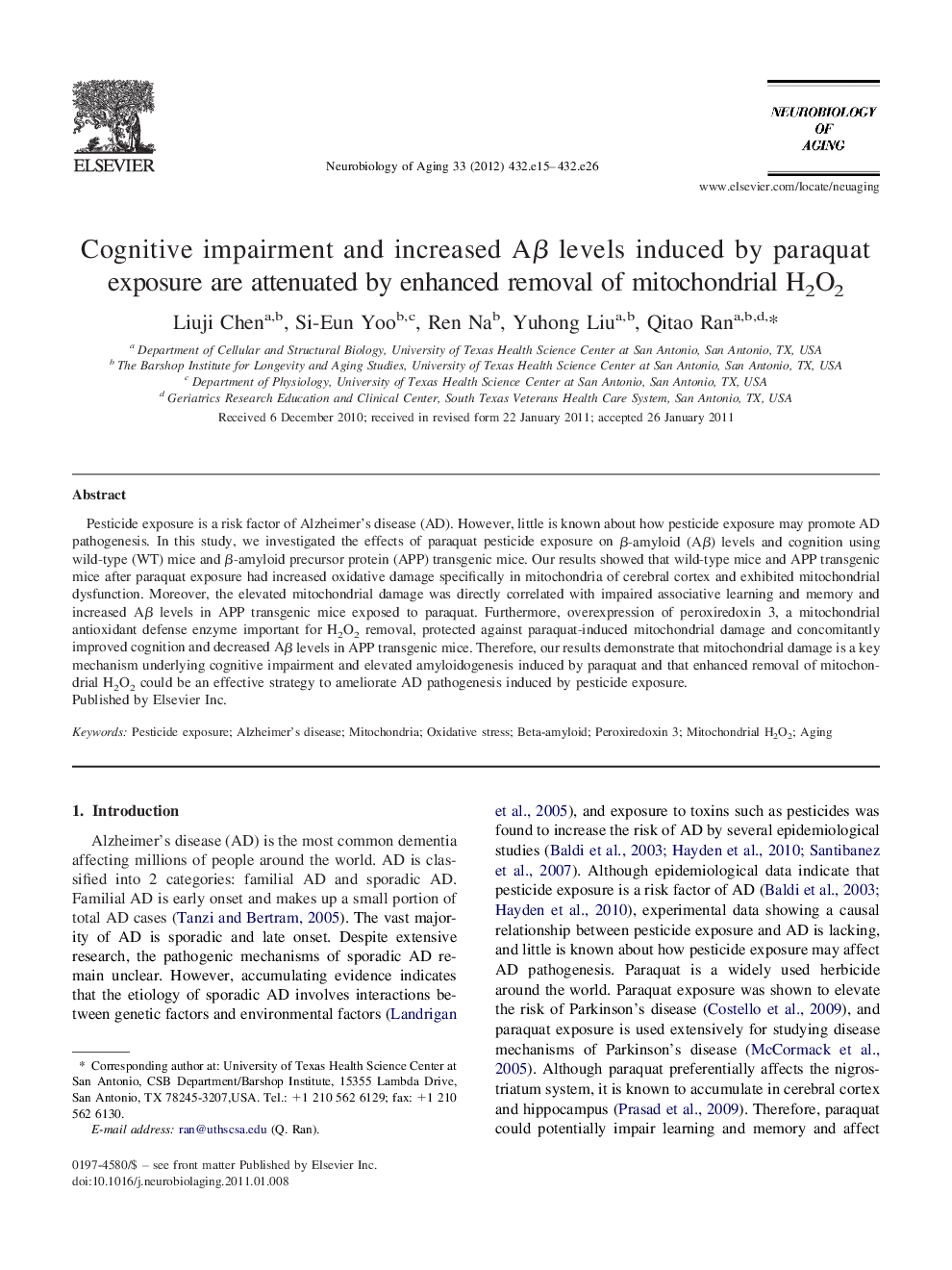| Article ID | Journal | Published Year | Pages | File Type |
|---|---|---|---|---|
| 6810054 | Neurobiology of Aging | 2012 | 12 Pages |
Abstract
Pesticide exposure is a risk factor of Alzheimer's disease (AD). However, little is known about how pesticide exposure may promote AD pathogenesis. In this study, we investigated the effects of paraquat pesticide exposure on β-amyloid (Aβ) levels and cognition using wild-type (WT) mice and β-amyloid precursor protein (APP) transgenic mice. Our results showed that wild-type mice and APP transgenic mice after paraquat exposure had increased oxidative damage specifically in mitochondria of cerebral cortex and exhibited mitochondrial dysfunction. Moreover, the elevated mitochondrial damage was directly correlated with impaired associative learning and memory and increased Aβ levels in APP transgenic mice exposed to paraquat. Furthermore, overexpression of peroxiredoxin 3, a mitochondrial antioxidant defense enzyme important for H2O2 removal, protected against paraquat-induced mitochondrial damage and concomitantly improved cognition and decreased Aβ levels in APP transgenic mice. Therefore, our results demonstrate that mitochondrial damage is a key mechanism underlying cognitive impairment and elevated amyloidogenesis induced by paraquat and that enhanced removal of mitochondrial H2O2 could be an effective strategy to ameliorate AD pathogenesis induced by pesticide exposure.
Keywords
Related Topics
Life Sciences
Biochemistry, Genetics and Molecular Biology
Ageing
Authors
Liuji Chen, Si-Eun Yoo, Ren Na, Yuhong Liu, Qitao Ran,
